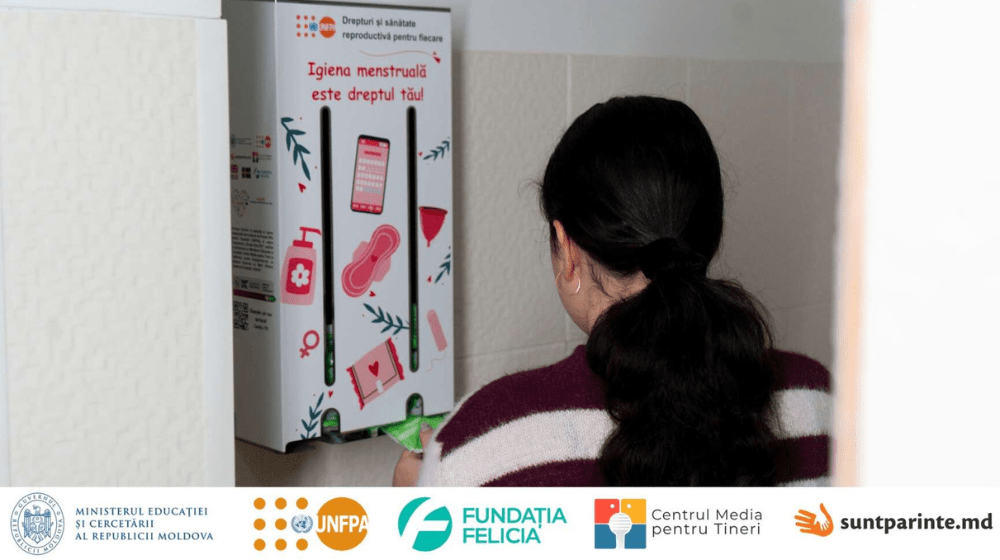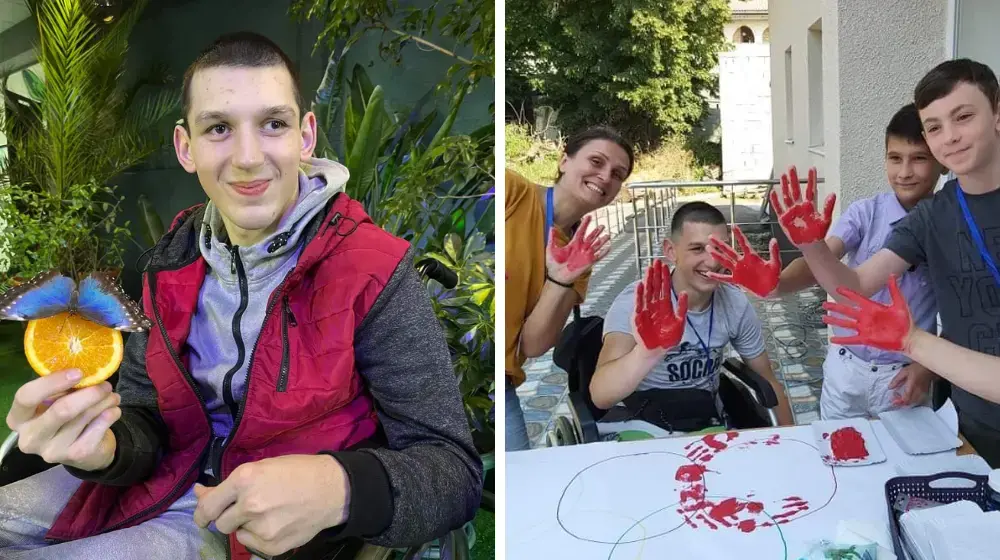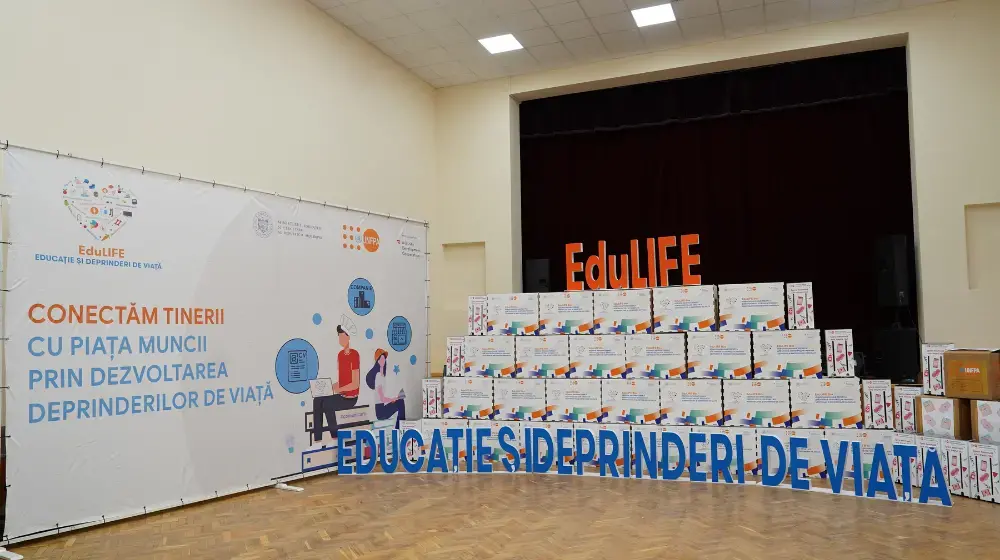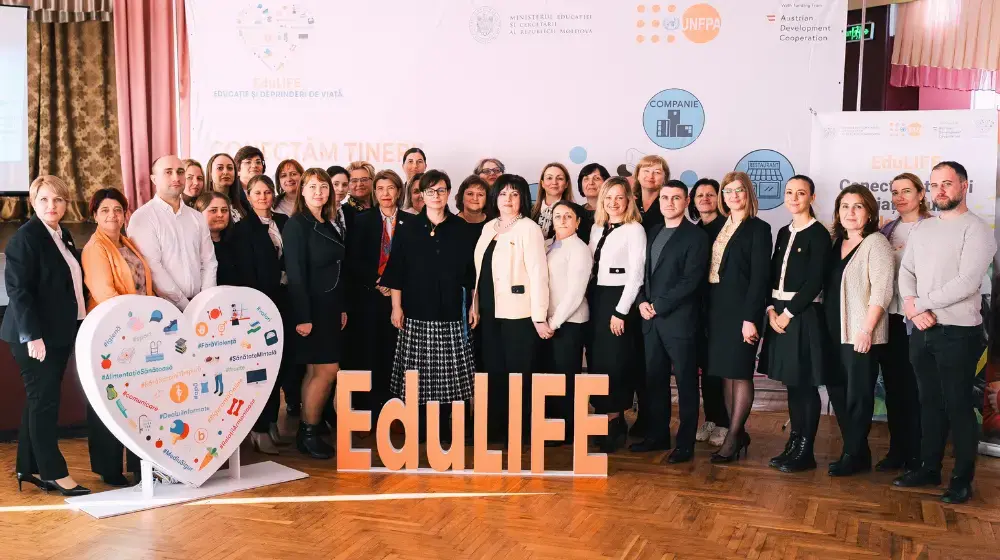Nearly 150 nationwide educational institutions offer free access to menstrual hygiene products within their schools. Sanitary pad dispensers are installed in girls' restrooms, ensuring students no longer need to leave class or seek help from peers or school nurses.
This initiative is part of the "EduLIFE School" Program, implemented by the United Nations Population Fund (UNFPA) in partnership with the Ministry of Education and Research, the "Felicia" Foundation, the Youth Media Center, and the media platform Suntparinte.md.
The program was piloted in 2023 in four general education institutions:
- "Mihail Sadoveanu" Theoretical High School, Hînceşti Municipality
- "Ion Creangă" Theoretical High School, Căușeni Town
- "Mitropolit Nestor Vornicescu" Theoretical High School, Lozova Village, Strășeni District
- "Ion Creangă" Gymnasium, Ermoclia Village, Ștefan Vodă District
Within three months of installing the dispensers, the percentage of girls in the pilot schools who missed at least one class during their menstrual period dropped over fourfold, from 55.2% to 12.5%.
Additionally, 56% of the girls surveyed said they feel safe at school. Nearly 39% of them also reported that boys no longer make jokes about menstruation and have become more respectful.
School absenteeism during menstruation is a reality in our country, as confirmed by teachers and social workers. Due to low family incomes, many girls are forced to skip classes or use alternative products such as cotton, gauze, tissues, socks, bedsheets, or even sleeves from their younger siblings' clothing.
In an online survey involving 558 female students, many respondents reported experiencing irregular and heavy menstrual cycles, hormonal imbalances, and, in the absence of enough sanitary pads, having to leave school early in the day. Moreover, menstruation now often begins much earlier (at 8–9 years old), making access to pads a necessity rather than a luxury.
In the new school year, alongside equipping schools with dispensers and sanitary pads, nearly 700 teaching and non-teaching staff participated in online training sessions. These sessions focused on puberty development, menstrual health and hygiene, and effective communication about sensitive and "taboo" topics. Following the training, teachers, school psychologists, and medical staff educated students about the natural changes in their bodies and how to navigate certain situations.
The list of educational institutions benefiting from the program can be found [HERE].
Similar initiatives have been successfully implemented internationally in several countries. Scotland became the first country to provide free menstrual products to all women, girls, and individuals experiencing menstruation in schools, universities, and some public spaces.
Additionally, many countries have reduced or eliminated taxes on menstrual products to make them accessible to everyone, regardless of financial situation or social status.
We hope to see these changes in Moldova as well so that no girl has to miss school or face bullying due to menstruation.





